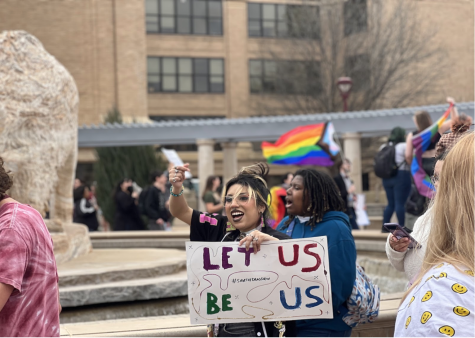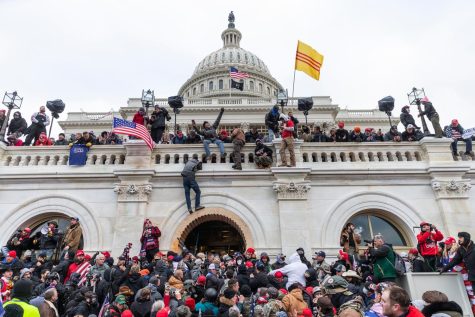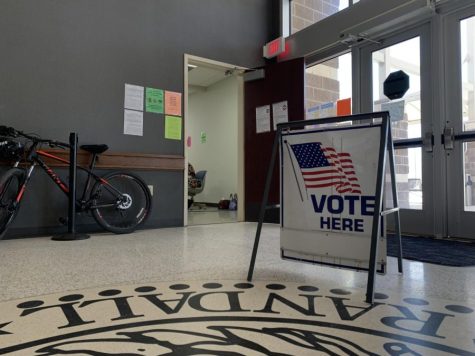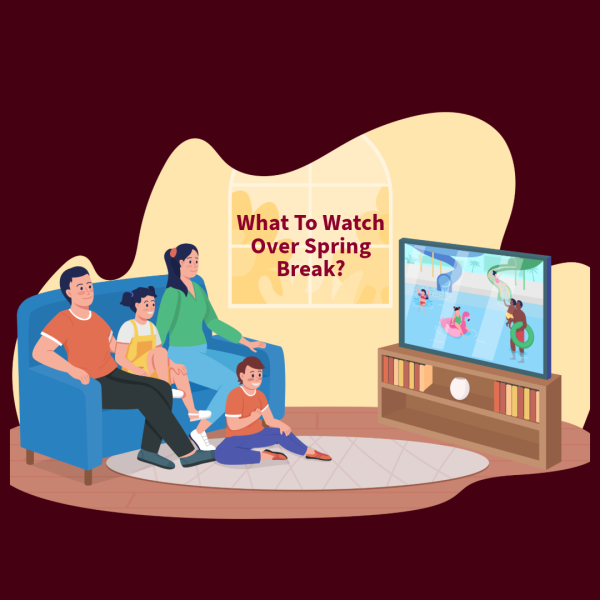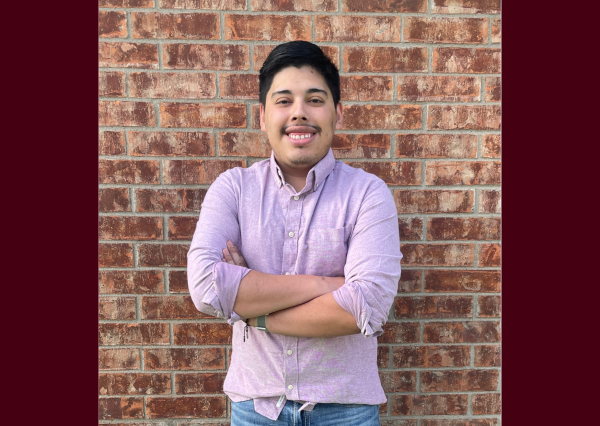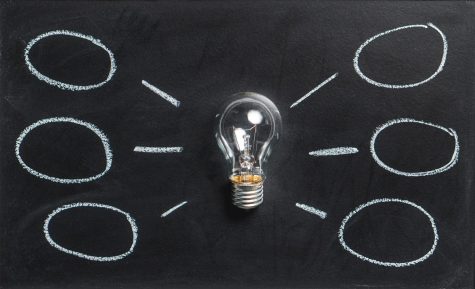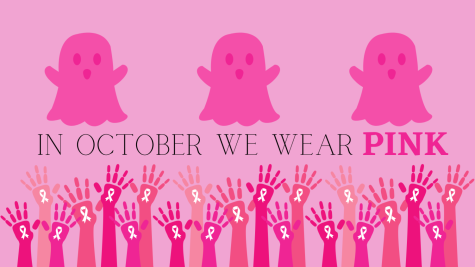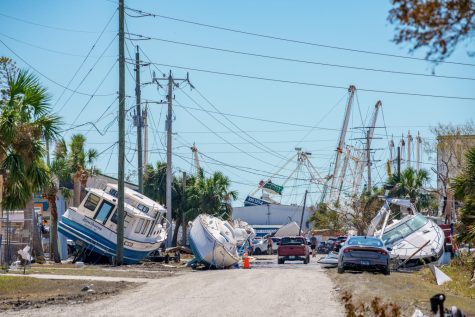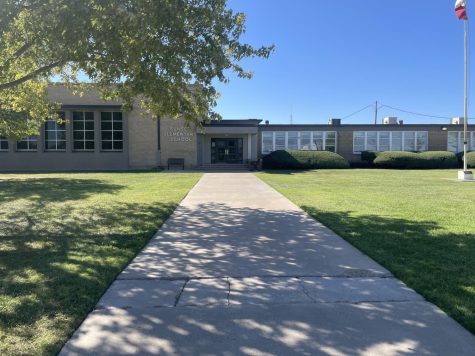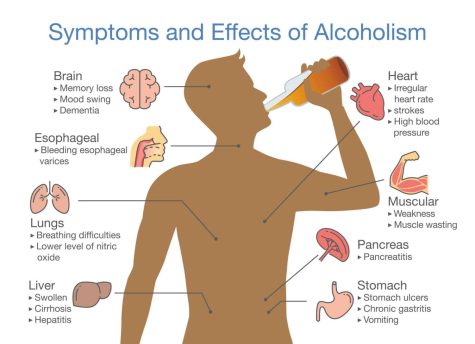Op-Ed: Why can’t we choose neither?
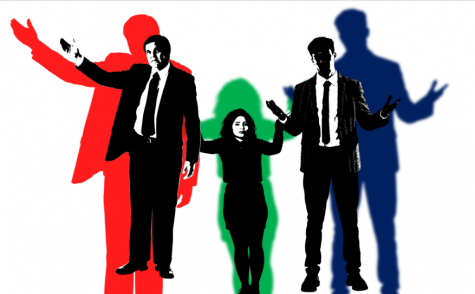
This year President Donald J. Trump is running for reelection against former Vice President Joe Biden and people are upset. Once again, America is to decide between an internationally derided, distrusted, utterly discordant former reality-TV star and a Democratic candidate so divisive in their own party it’s both astonishing and annoying they’re on the ballot. Four years ago, U.S. citizens found themselves in the same leaky boat headed towards a waterfall with shark bait and an anchor in the place of a rescue helicopter and wondering why a life ring wasn’t an option. Living in Germany at the time of the 2016 election, we all collectively thought the same thing that I suspect many Americans are thinking now: Where’s the third party?
America, like many of the other democratically oriented countries of the world, has almost a hundred different parties. But in those other countries about ten or so take their seat in the government while Americans must settle for two ancient, flip-flopping parties with underwhelming mascots and even lesser motivating candidates. And now that I find myself in the U.S. with the ability to either vote for a chaotic egomaniac or a candidate so ambiguously positioned politically they may as well be one of those pictures you put your head in at the carnival, I find it imperative to figure out how to crack this system open like an egg and fry up the omelet of true democracy hiding underneath its shell.
Even preliminary research shows that a huge obstacle for third parties is that, even though almost half of Americans claim to be independents, the overwhelming majority of the country votes, either habitually or religiously, either Democratic or Republican. As this graph from Dave Leip’s Atlas of US Presidential Elections shows, the last third-party candidate to get even 19% of the vote was Ross Perot in 1992.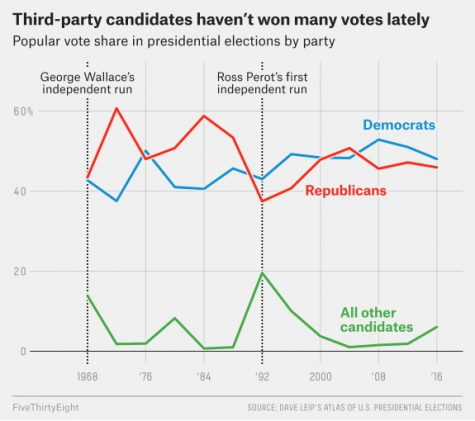
But even if we say that somehow a candidate so perfect and independent that the majority of America would see them as a great option for their president would rise up, their campaign couldn’t be run without millions of dollars, which they couldn’t realistically receive without backing by companies we wouldn’t want the president owing favors to, and they wouldn’t be able to rely on the popular vote because the electoral college exists and hinders a truly democratic decision in favor of a system designed when there were only 17 states and people thought slavery was okay. So, I am beginning to think that third parties aren’t discussed because of how depressing the subject is. The situation the U.S. is in is volatile and frustrating but reinforced by its own citizens and cemented by traditions, outdated rules, and good old-fashioned capitalism.
When I chose to write this piece, my intent was to find a loophole in the system and relay a path to rebellion, which would let us, the people, fight back against the two-party cartel that keeps the country from moving toward true change and away from needless whataboutisms and other-demonization. But instead I found a locked door that was being rammed by people who had the key in their pocket. Short of total anarchy, the only viable option is concentrated, consistent change from within, for the people, backed by the people, with nothing but pure intent. This would require us to care for our neighbors and the poor, to educate each other on the devastation done by big monopolies and to actually get up and really do our job as thinking, caring, loving creatures and cogs in a machine bigger than our backyards. We’d have to do the research, go to the polls and vote unhampered by doubts and thoughts of futility. With that in mind, I think anarchy is more likely.

English-speaking, American-born European from Germany studying English at WTAMU in order to one day become the next person to aspire to be a great author.




